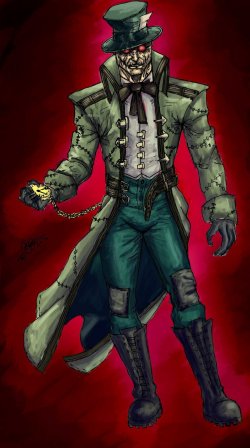Abishai100
VIP Member
- Sep 22, 2013
- 4,959
- 250
- 85
Black Friday is the day following Thanksgiving Day in the United States (the fourth Thursday of November). Since 1952, it has been regarded as the beginning of the Christmas shopping season in the U.S., and most major retailers open very early (and more recently during overnight hours) and offer promotional sales. Black Friday is not an official holiday, but California and some other states observe "The Day After Thanksgiving" as a holiday for state government employees, sometimes in lieu of another federal holiday such as Columbus Day. Many non-retail employees and schools have both Thanksgiving and the following Friday off, which, along with the following regular weekend, makes it a four-day weekend, thereby increasing the number of potential shoppers. It has routinely been the busiest shopping day of the year since 2005, although news reports, which at that time were inaccurate, have described it as the busiest shopping day of the year for a much longer period of time (source of information: Wikipedia).
The spread of capitalism and the emergence of consumerism culture since the 1980s has made shopping a new 'face' of American society, and new considerations regarding merchant reliability, product distribution, and labor concerns has compelled policymakers to think about how the U.S. Constitution deals with consumers.
We can just imagine the laundry list of topics ranging from the right of private American citizens to purchase firearms to the protection of intellectual property on the commerce and traffic-heavy Internet.
We can even argue for such reasons that Black Friday has become like St. Patrick's Day, with comparable social value and political weight, and certainly our finance-minded U.S. President (Donald Trump) is conscious of this.
How does Black Friday affect immigrants? How do ethnic minorities feel when they turn on NBC on autumn Saturdays and notice a colorful Irish Leprechaun mascot cheering on the Notre Dame college football team?
Capitalism, and hence consumerism, is requiring us to re-examine the U.S. Constitution and find how its clauses and amendments protect every citizens' right to shop without remorse, tax worry, and unwanted governance.
However, has the Internet made governmental regulation desirable?

The spread of capitalism and the emergence of consumerism culture since the 1980s has made shopping a new 'face' of American society, and new considerations regarding merchant reliability, product distribution, and labor concerns has compelled policymakers to think about how the U.S. Constitution deals with consumers.
We can just imagine the laundry list of topics ranging from the right of private American citizens to purchase firearms to the protection of intellectual property on the commerce and traffic-heavy Internet.
We can even argue for such reasons that Black Friday has become like St. Patrick's Day, with comparable social value and political weight, and certainly our finance-minded U.S. President (Donald Trump) is conscious of this.
How does Black Friday affect immigrants? How do ethnic minorities feel when they turn on NBC on autumn Saturdays and notice a colorful Irish Leprechaun mascot cheering on the Notre Dame college football team?
Capitalism, and hence consumerism, is requiring us to re-examine the U.S. Constitution and find how its clauses and amendments protect every citizens' right to shop without remorse, tax worry, and unwanted governance.
However, has the Internet made governmental regulation desirable?
